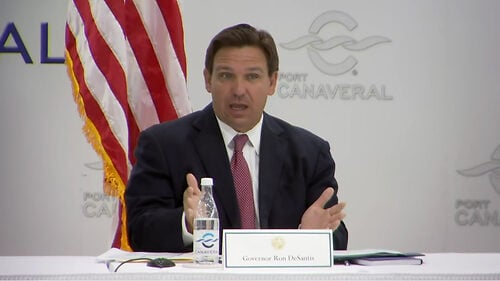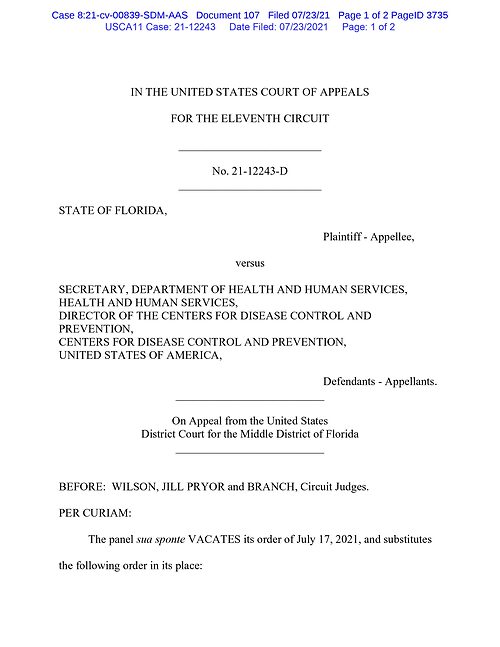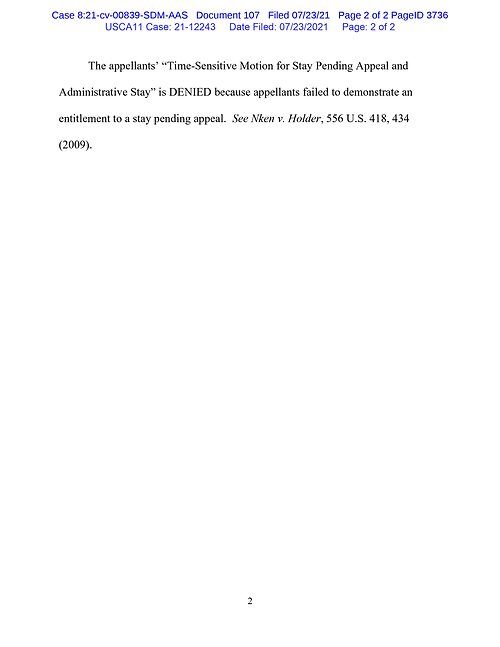In yet another change, a federal appeals court has reconsidered Florida's win over the U.S. Centers for Disease Control and Prevention’s (CDC), and lifted the agency's Conditional Sail Order (CSO) regulations.

Late on Friday, the 11th Circuit Court of Appeals decided to let stand the lower court's ruling in favor for the State of Florida, which removes restrictions on how cruise ships can restart operations.
Last weekend, the 11th Circuit Court of Appeals voted to approve the CDC's request to prevent Florida's legal victory from going into effect while the appeals process plays out.
That decision was vacated on Friday, just before Florida asked the U.S. Supreme Court to intervene and reverse the appeals court’s decision.
The reversal was because the appeals court feels the federal government failed, "to demonstrate an entitlement to a stay pending appeal."
The result is the CSO is no longer enforceable in Florida, although it remains in effect for other states, such as Texas, Washington, or New York.
It remains to be seen what, if any, change will occur with the cruise lines. Thus far, no line has announced plans to deviate from the CDC's plan.

The CSO outlines rules for cruise lines on how they can restart operations. Specifically, it requires each ship either guarantee at least 95% of its passengers and 98% of its crew members be fully vaccinated. Ships that do not adhere to this mandate, must first conduct test cruises before they can sail with paying customers.
The CSO also requires cruise lines to get agreements with each port for how to handle Covid-19 cases, as well as regulate testing onboard.
Florida celebrated its victory swiftyly, "Today, following Florida’s application to the United States Supreme Court, we were excited to see the 11th Circuit Court of Appeals reverse its prior order and free the cruise lines from the unlawful CDC mandates," Taryn Fenske, spokesperson for Gov. Ron DeSantis, said in an email.

Florida Governor Ron Desantis sued the CDC in April as a way to combat the CDC holding cruise ships back from restarting cruises.
The CDC instituted a ban on all cruise ships from the United States in March 2020 due to the global health crisis. Then on October 30, 2020 the CDC imposed a four-phase conditional framework it said would allow the industry to gradually resume operations if certain thresholds were met.
Judge Steven D. Merryday ruled on June 18 in favor of the State of Florida in its lawsuit against the CDC to lift the Conditional Sail Order.

The intention of the ruling was to bring cruise ships in line with other forms of leisure travel and entertainment, such as airlines, railroads, hotels, casinos, sports venues, buses, subways, and others.
The CDC appealed the verdict and asked Judge Merryday for a stay to ensure the CSO did not get lifted while the litigation is sorted out in the appeals process.
While the CDC believes its regulations provides a framework based on the best available scientific evidence, Judge Merryday believes the agency overstepped its powers.

He said the CDC's actions were more than just about public health, "this action is not about what health precautions against COVID-19 are necessary or helpful aboard a cruise ship; this action is about the use and misuse of governmental power."
As a result, the CSO is now a recommendation rather than a requirement.









